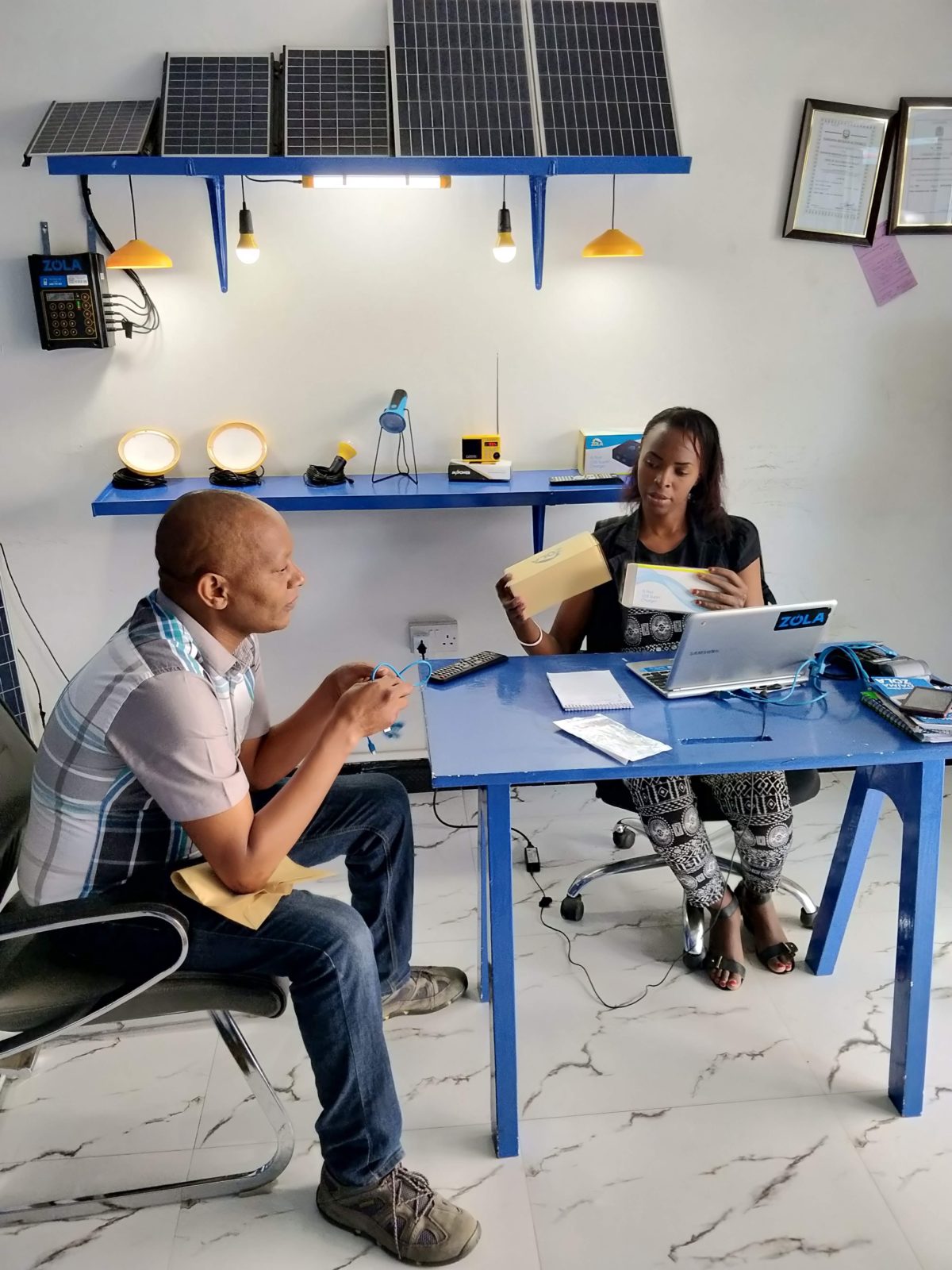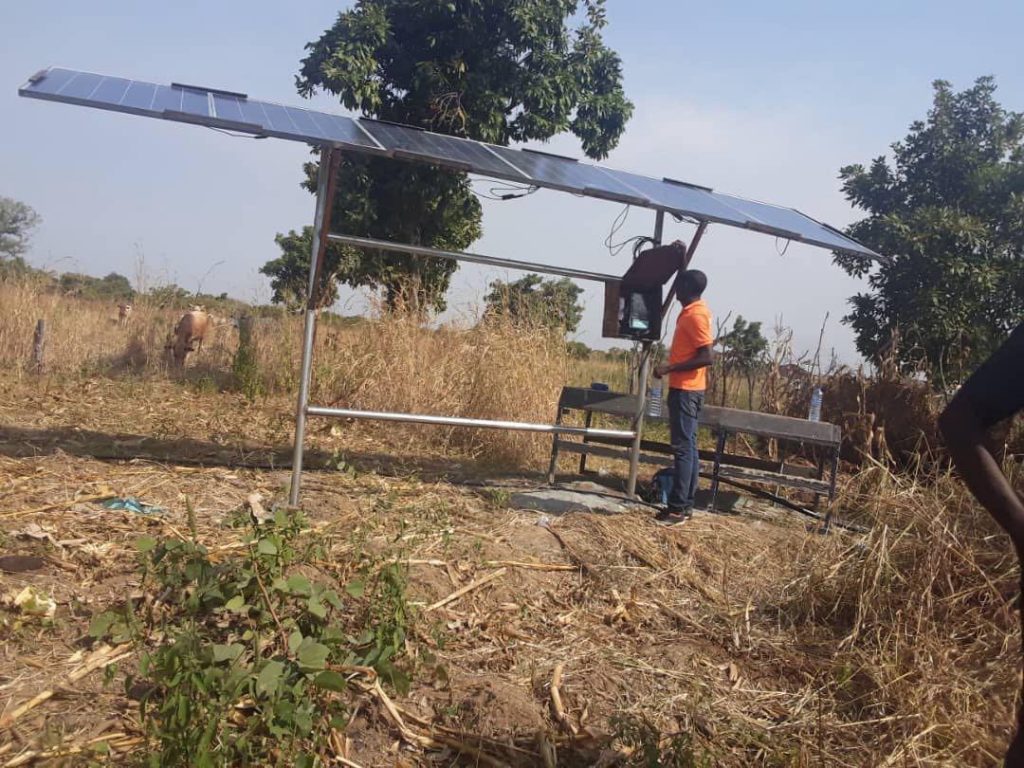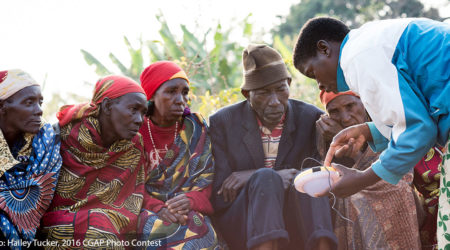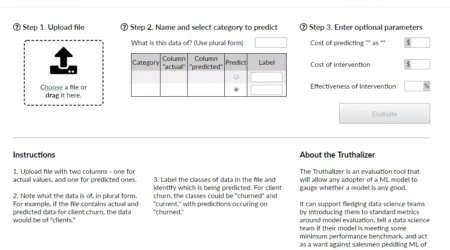The power of flexibility: How innovative payment models can expand access to energy services

In the past eight years, over 10 million people in emerging economies have acquired modern energy for the first time. This has arrived in the form of long-lasting solar home systems, with growth driven by an emerging technology and financing innovation, known as Pay-As-You-Go (PAYGo). Under a PAYGo model, an off-grid and unbanked household or small business can acquire a high-value asset that provides life-changing energy services. Services are acquired by paying a small deposit, and committing to pay off the balance through mobile money-based payments — in a frequency that fits the realities of their individual financial lives.
Payment flexibility is central to PAYGo’s appeal as it closely matches the end-users’ prior energy expenditure patterns, such as purchasing kerosene or batteries in small increments only when needed for the next few days or weeks. This payment flexibility — the combination of user-defined payment amounts, the ability to choose how often to pay, and the freedom to enjoy small periods of non-payment without additional fees or penalties — has unlocked significant latent demand in the solar sector, and shows significant promise to revolutionize asset financing and the broader financial services industry.
At BFA Global we have explored the role of payment flexibility in asset financing and utility services under Financial Inclusion on Business Runways (FIBR), a four-year R&D program with Mastercard Foundation. Through work with seven PAYGo energy and water providers in East and West Africa, we have seen that the power of payment flexibility comes from its match with how the mass market earns and spends.
For hundreds of millions of people globally, income is low, irregular, and unpredictable. Household expenses are managed dynamically, with few tools available to smooth income or consumption. As such, essential products and services are broken down into the smallest possible increment — sachets of kerosene, washing powder, and cooking oil that fit a single day’s requirements. This enables households to purchase in larger quantities when cash flow is high, reduce immediately when required, and avoid consumption altogether when cash flow is low. Through digital payments and remote lockout hardware, PAYGo solar is able to apply a similar level of flexibility to the financing of an asset purchase.
The off-grid solar sector struggled for many years to find a set of product offerings that would be affordable to the mass market in emerging economies. This was because most target customers either:
- Lacked access to formal finance,
- Were uncomfortable using their limited access to financial services on energy, or
- Feared entering into a financial contract that required strict regular weekly or monthly payments — these types of payments often came with the potential to lose pledged collateral in the case of temporary delinquency.
Three factors changed this scenario and set the stage for an explosion of flexible asset financing products and business models:
- The convergence of lower battery and solar panel costs.
- The rise of mobile money in major African markets.
- The emergence of low-cost metering hardware and software platforms.
An unbanked household in rural Ghana can now sign up for a PAYGo solar loan without a bank account or a prior credit history, does not have to pledge additional collateral, and can repay at a speed that matches their repayment capability (within some limits). A single payment unlocks use of the product for a prepaid amount of time and shuts down when that balance is exhausted. The freedom to pay how much and when a customer wants (or is able) is more attractive than a straight-jacket fixed installment plan for most households, and the combination of digital payments and remote lockout has given PAYGo solar providers the confidence to extend financing to millions of people who would otherwise go unserved.
The PAYGo solar model is already pulling people into additional financial services. With years of product and payment data, PAYGo operators are able to leverage unique insights into customer behavior to extend the relationship and maximize customer lifetime value. Good-paying customers of Fenix International in Uganda can access smartphones, cookstoves, and TVs through flexible financing offered as an upgrade when the customer is close to completing the first solar loan. It doesn’t stop with assets — Fenix has also rolled out loans for school fees, and is experimenting with home improvement and agricultural loans. In Ghana, PEG Africa offers short term health insurance as a repayment incentive and has started to finance solar water pumps, and last year M-KOPA launched cash loans to clients completing the purchase of a PAYGo solar kit. By repaying the initial solar loan, a PAYGo consumer creates a transaction history that could be reported to credit bureaus, gains experience with digital payments, and forges a strong relationship with a provider that is increasingly diversifying beyond energy.


In the last two years, following the PAYGo solar market’s use of flexible financing, we have seen significant innovation also in regards to products and business model related to other markets. For instance, in Kenya, a gas stove and LPG cylinder can be purchased taking a flexible loan from PayGo Energy. Systema Bio offers farmers flexible loans to purchase a home biogas digester for lighting and cooking. Safe Water Network offers access to clean water on a PAYGo basis in rural Ghana, and is experimenting with flexible financing of piped water connections. PayJoy’s technology enables flexible financing of smartphones in Mexico, India, and East Africa, and earlier this year Angaza and Endless Solutions deployed the world’s first PAYGo computer.
Payment flexibility is at the center of this wave of innovations, and is a major contributor to the PAYGo solar market’s recent growth. While extremely attractive to end-users, we have seen that executing flexible financing at scale does require significant changes to how agents interact with customers, how a provider analyzes and leverages data, and often requires changes to the overall business model and financing arrangements with funders. In the next post in this series, we will explore FIBR’s learnings across this spectrum.



